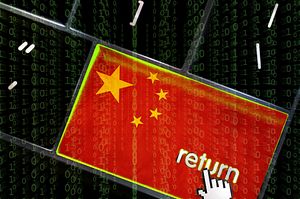The U.S.-China cybersecurity working group recently met for the second time during the first week in December. There have been no public reports of what was discussed or what progress, if any, was made. As with many of these dialogues, one of the main goals is not concrete deliverables, but reducing mistrust between the two sides. Yet some recent articles suggest that mutual understanding is going to be hard to find, and that some in China see cyberspace as increasingly antagonistic and dangerous.
CCID Think Tank, a consulting company that has its roots in the former Ministry of Electronics Industry, released its forecast [Chinese] for the new year, and it describes five broad, bleak trends:
- Risk of global conflict is rising: The hacking war between Malaysia and the Philippines, attacks by the Syrian Electronic Army, expansion of U.S. Cyber Command, and NSA revelations are all evidence of greater friction in cyberspace.
- Trade barriers will impact the entire information technology (IT) sector: The United States is only the most prominent case of using national security “to suppress China’s entire IT industry.” Australia, UK, India, and Canada have also used security concerns to block Chinese products.
- Western countries will increase their Internet containment of China: Countries are able to use the Internet to contain China through public reporting of alleged Chinese attacks on U.S. technology companies and media—the “China network threat theory”—as well as through diplomatic efforts with friends and allies—U.S.-Korea dialogue on cyber, U.S.-Japan defense consultations, and ASEAN-Japan cooperation.
- Impact of cybersecurity events will grow: Losses caused by cybercrime will increase and affect more people, there will be more attacks on the media, and the scale of organized criminal groups is growing.
- New technologies mean new threats: The most prominent are cloud computing, the Internet of things, mobile, and big data.
In an interview, Major General Wu Jiangxing [Chinese], the president of the PLA Information Engineering University [Chinese], argued that with China’s technological backwardness, “transparency has become a grim reality for our country. Not transparency that we want, but in that we are transparent.” The CCID report also spends a great deal of time on the technological gap between China and the West, and introduces another critical fissure, between “offensive and defensive capabilities in cyberspace.” Echoing this, Major General Wu claims, “The gap is that China does not have a cyber army, whereas the United States has established a Cyber Command, certainly with cyber warfare units.”
The CCID report and Major General Wu’s interview share some similar suggestions for how China must respond. Innovation and technological development are critical. For Wu, only revolutionary game-changing technology can reverse China’s transparency. Within China, the institutional, legal, and policy frameworks must be developed. The CCID report mentions the development of active defense and offensive capabilities. Major General Wu speaks of the need for “implementing a proactive defense that has counter-measures,” but later in the interview is more oblique: “We must continue an eye for an eye, a tooth for a tooth, to deal with this system.” The CCID report also wants China to step up its international efforts to promote the concept of national sovereignty in cyberspace within the UN framework.
These are, of course, only two voices, and there are others who stress the transnational nature of cybersecurity and the need for international cooperation. Hopefully, these views will gain traction in Beijing and Washington; otherwise, Major General Wu may have the last word: “Cyberspace has become a field of intense struggle, and the state, government, and army must take extraordinary measures to enhance its security.”
Adam Segal is a Maurice R. Greenberg Senior Fellow for China Studies at the Council on Foreign Relations. This piece was previously published on CFR.org’s Asia Unbound blog.

































